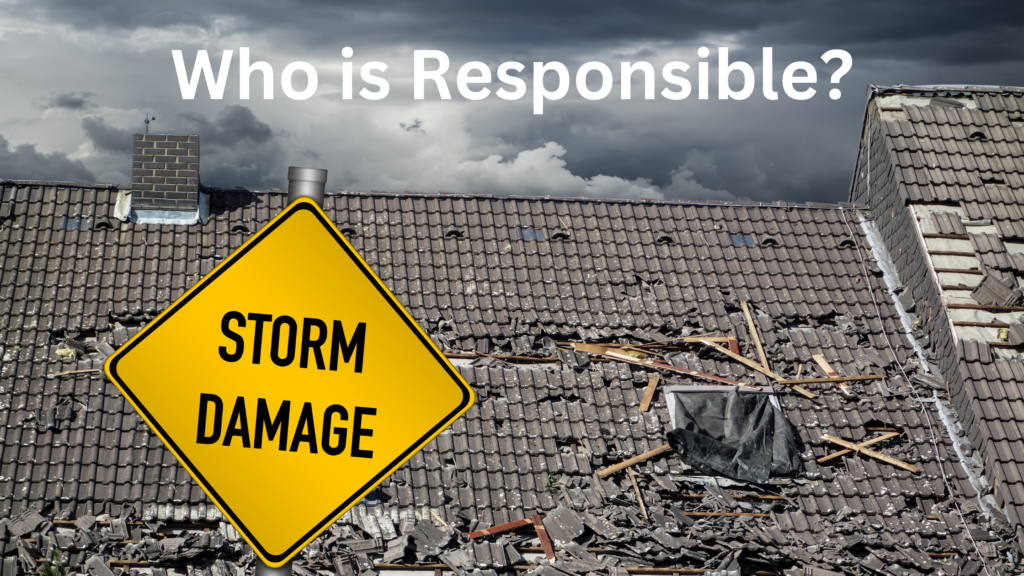
When stormy weather hits Port-Elizabeth, it can leave a trail of destruction in its wake, impacting homes and rental properties alike. Understanding who is responsible for the repairs after such events can be quite the conundrum. Is it the landlord who owns the property or the tenant who lives there? Let’s dive into the details to clarify this complex issue.
Understanding Storm Damage
Storm damage can range from minor issues like broken windows to severe structural problems caused by heavy rains, gale-force winds, or hail. In Port-Elizabeth, common causes of storm damage include tropical storms and sudden, violent weather changes.
Landlord’s Responsibilities
Under common law, landlords are responsible for damages caused by unforeseeable and uncontrollable events, such as natural disasters. This means that if a storm damages the property, the landlord typically has to handle the repairs.
Examples of Landlord Responsibility
Imagine a hailstorm hits and damages the roof, or heavy rains cause flooding that soaks the carpets. In these cases, it’s clear that the landlord must step in to fix the weather-related damage. This principle ensures tenants aren’t left with the burden of repair costs for events beyond their control.
Tenant’s Responsibilities
Tenants, however, aren’t entirely off the hook. If the damage results from their negligence, they’re liable for repairs. Negligence here means failing to act with the care a reasonable person would under similar circumstances.
Examples of Tenant Liability
For instance, if a tenant leaves a pot on the stove overnight, causing a fire, they must cover the repair costs unless the landlord’s insurance covers the loss. This example highlights the importance of tenants adhering to safety protocols and maintaining the property responsibly.
Mixed Liability Scenarios
Liability can get tricky when damage results from both uncontrollable weather and tenant negligence. Picture a tenant who leaves windows open during a storm, leading to water damage inside the property. In such mixed scenarios, determining liability can be contentious, especially if insurance doesn’t cover the damage. Both parties might need to negotiate based on the tenant’s negligence versus the impact of the uncontrollable event.
Insurance Considerations
Insurance plays a significant role in covering storm damage. Landlords typically have property insurance, which covers damage from natural disasters. Tenants should have renter’s insurance to cover their belongings and any liability they might incur.
Sectional Title Units
In sectional title schemes, like apartment blocks, the Sectional Titles Act comes into play. This act outlines the responsibilities of the body corporate, which handles repairs to common property areas such as roofs, gardens, and pools.
Body Corporate Responsibilities
According to Section 37 of the Sectional Titles Act, the body corporate is responsible for maintaining common property areas. This means landlords and tenants in these schemes rely on the body corporate to ensure these areas are kept in good condition, regardless of individual liability.
Dispute Resolution
Disputes between landlords and tenants over storm damage repairs can be stressful. It’s crucial to handle these disagreements through mediation or seek legal advice to resolve the issues fairly.
Preventative Measures
Both landlords and tenants can take steps to minimize storm damage. Landlords should ensure the property is well-maintained and secure, while tenants should follow safety protocols and report any potential hazards immediately.
Communication Between Landlords and Tenants
Clear communication is key to managing storm damage responsibilities. Both parties should discuss and document their roles and expectations, making it easier to navigate any issues that arise.
Legal Considerations
Familiarize yourself with local laws and regulations regarding rental properties and storm damage. Understanding these legal aspects can help both landlords and tenants know their rights and responsibilities.
Conclusion
In conclusion, when it comes to storm damage in rental properties in Port-Elizabeth, landlords are generally responsible for uncontrollable weather-related damage, while tenants must avoid negligence that could complicate liability issues. Clear communication and adhering to property maintenance guidelines can help both parties manage these situations effectively.
FAQs
- Who pays for storm damage repairs?
- Generally, landlords pay for damage caused by uncontrollable events, while tenants pay if the damage is due to their negligence.
- Can a tenant be evicted for not paying for damage?
- Yes, if the tenant is responsible for the damage due to negligence and fails to cover the repair costs, they could face eviction.
- What should tenants do immediately after storm damage?
- Tenants should document the damage, notify the landlord, and follow any safety protocols to prevent further damage.
- How can landlords protect their properties?
- Landlords can protect their properties by ensuring regular maintenance, securing insurance coverage, and reinforcing structures against severe weather.
- Are there any tax benefits for repair costs?
- Yes, landlords can often claim tax deductions for repair and maintenance costs, but it’s advisable to consult a tax professional for specific advice.
